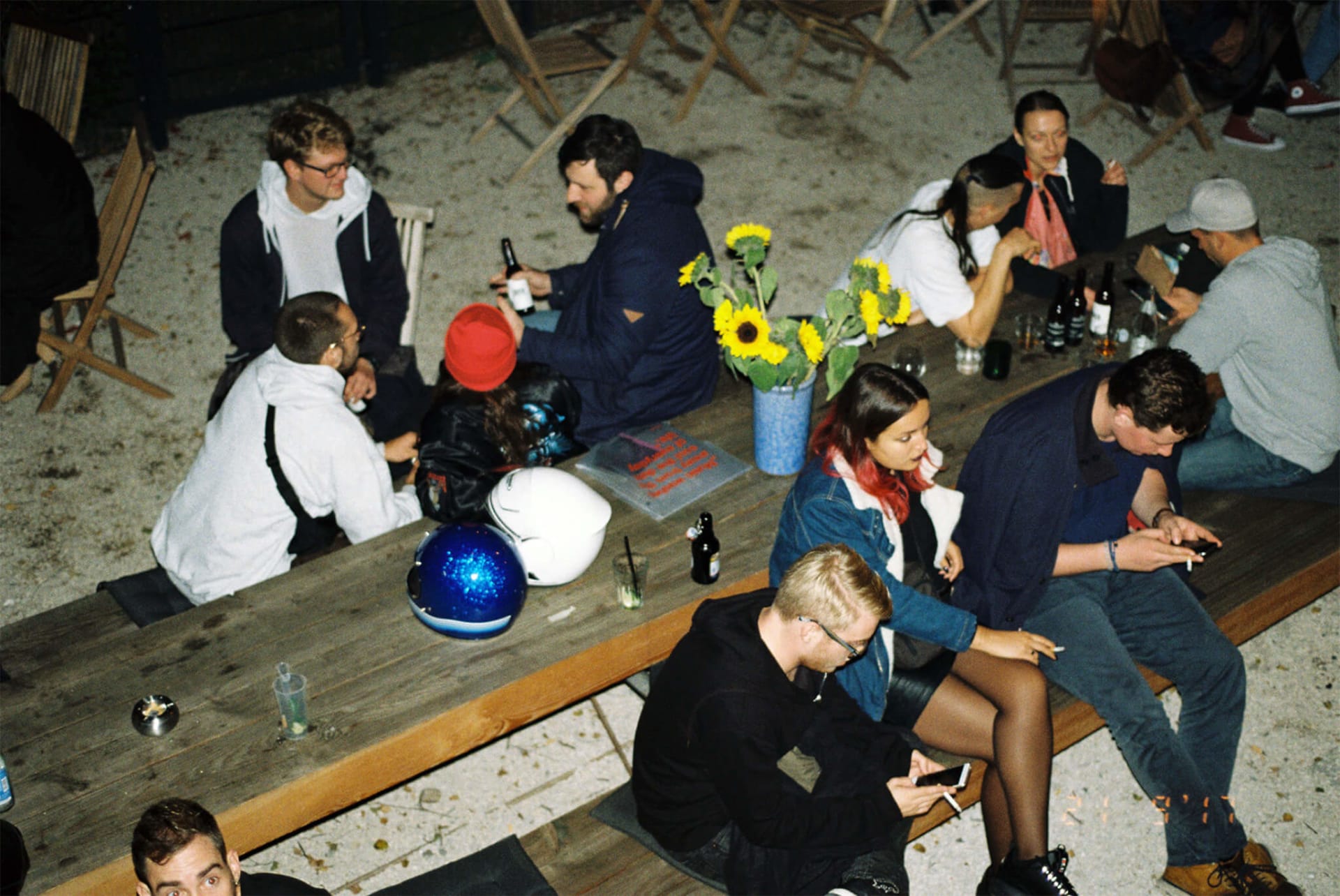
Tbilisi In Berlin: Highlights From A Concert At A Crematorium
The launch of Irakli Kiziria’s Georgian ambient label, Intergalactic Research Institutes For Sound, happened last Thursday night at a crematorium-turned-concert hall called Silent Green in Wedding. The lineup featured live performances from the debut EP’s five solo artists: Rezo Glonti, MYI, Severiane, Zesknel and Natalie Beridze/TBA, who has frequently contributed to the work of Georgian ambient artist Gacha Bakradze. (Read Gacha’s guide to Tbilisi’s underground here.)
The concert and label launch occurred at a particularly auspicious moment in Georgia’s musical narrative: its underground scene has garnered recognition on the international stage in the last two years, in part due to the launch of the club Bassiani and its counterpart, Khidi, as well as to the increasing exposure of to Tbilisi’s strong cadre of local talent. (You can see photos from both in our photo feature on Tbilisi’s important nightlife venues.) Intergalactic Research Institutes For Sound, however, presents a different and more subtle side of the country’s blossoming taste for experimental production, and its inauguration in Berlin represents the salience of the capital city’s musical output beyond its borders.



Kiziria is a Tbilisi native who has been active in Berlin’s music scene since his relocation eight years ago. He’s widely known for his involvement in I/Y, a prolific techno outfit he contributes to along with German producer Yac, as well for running the popular daytime party Staub, which we covered in our guide to Berlin’s best parties. But Intergalactic Research Institutes For Sound is a striking departure from Kiziria’s more dance floor-oriented inclinations. Each track on the debut EP is designed for home listening and possesses sweeping soundscapes and melodies, new age ambience and disarmingly soulful melodies with deep—and sometimes dark—emotional undercurrents.
Kiziria’s motivations for releasing the EP stemmed from a personal sense of liminality between his two distinct cultures and countries. “When you move to a different country, at one point you’ll learn to speak the language, but if you want to express something very deep, emotional or scientific, you realize that something is still missing in your language and your expression,” he explained. “But you also start to lose a sense for your native language. You’re somewhere in between cultures.” The EP’s name, დე / DE, is a reference to the Georgian word for “mother” and the sense of longing that can arise from geographic and cultural dislocation. “This music is about being in between spaces and languages,” Kiziria continued. “It’s about not knowing where you are. So this music touches a lot. It’s very strong.”
Rezo Glonti kicked off the showcase with a live set comprised of cascading arpeggios, harmonic drones and a pastiche of field recordings taken from his extensive time spent at sea—his studio is positioned in the hull of his boat. The room’s rotunda was bathed in soft blue lights that ebbed with his delicate soundscapes. The music took a darker and more abstract turn, however, with Severiane and later Zesknel, whose live productions cycled through sound collages, unsettling synth timbres and design sensibilities redolent of the exploratory production practices native to musique concrete. In our opinion, it was MYI who exhibited the most engaging—albeit the least overtly experimental—set. It generated heavily reverbed industrial sounds and unsettling alien sequences that would not have felt out of place in more traditional deep techno.



Despite some of the startling discrepancies between these sets, however, the showcase was incredibly cohesive and an appropriate portrayal of the დე / DE compilation. The next EP, Kirziria divulged, will come from none other than capital-T techno producer Stanislav Tolkachev and will stay true to his vision of electronic listening music guided by well-worn nostalgia and stylistic depth. “It’s ‘adult techno,’” the label boss said. “I want to release some more challenging music, but I want to reflect on this first release before planning so much for the future.”
We can only hope for more of the Georgian label’s continued output. That the concert was sold-out and the venue overflowing with attendees is a testament to the growing popularity of the country’s electronic music scene. Intergalactic Research Institutes For Sound doesn’t only provide us a critical window into Georgian culture’s rich musical heritage and artistic community, but a platform for Tbilisi’s burgeoning talent and a much-needed antithesis to the club music driving Berlin’s nightlife steadily forward.



See recent photos of the Tbilisi underground rave scene here and follow George Nebieridze here.
Read more: See photos of what Tbilisi’s rave scene looked like before the hype
Published September 25, 2017.
